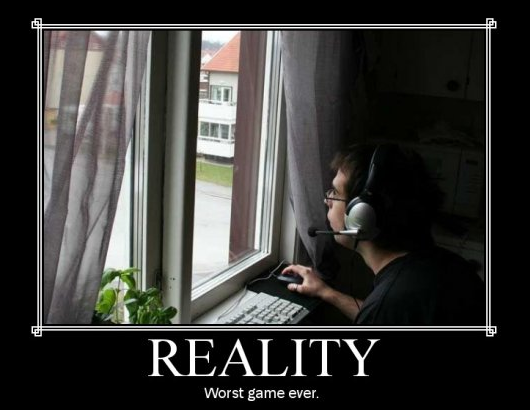Nothing to say apart from a rant about the battery life of iPhones and the near useless nature of Apple customer support, which I’ll avoid.
Category Archives: Uncategorized
A Generation on Fire
“The American Psychological Association released a report in 2013 that found the millennial generation – those aged 18-34 – had a higher rate of stress (5.4 out of 10) than the U.S. population as a whole (4.9). Moreover, nearly 40 percent of young Americans said their stress levels had increased in the past year, while 52 percent admitted that anxiety keeps them awake at night. Stress and anxiety are manifested as themes in modern youth entertainment.
In our 2012 probe A Generation on Fire, we noted the immense popularity of teen dystopian fiction and film series. The Hunger Games was highly symbolic of the chasm between youth and the ruling generation, which evolves into a David versus Goliath narrative. In this case, the young prevented from participating fully in a system tilted by the old for those growing old at the expanse of the young.This generational theme is observable and throughout the culture. Entertainment provides the clearest window into the dynamic. Veronica Roth’s Divergent series is the next dystopian tale to hit the big screen. Teens are forced into a form of academic testing that determines their place in the world for life. The symbolism is straightforward. Standardized college tests – SAT and ACT – are stress producing in part because they are separators. The fact the tests can be gamed by the rich – high-priced test preparation classes, private tutors, and financial ability to take multiple tests is a source for even deeper anxiety, even among the rich. Divergent’s main character “fails” her test. She vows to subvert “the system,” and eventually helps to create a classless society.
Aside from dystopian fiction, we have observed the rise of a decidedly realistic genre of young adult fiction dubbed “sick-lit,” which has quietly replaced stories of werewolves and vampires on best-seller lists. This genre employs themes of illness, particularly cancer, bullying, and self- harm. Several of the genre’s novels have millions of copies in print, have been optioned for film, are in production, or have already been released.
Three of the most popular are:
• By the Time You Read This, I’ll Be Dead – A bullied girl contemplates suicide and is befriended by a boy with cancer.
• Thirteen Reasons Why – A teen girl commits suicide, but leaves a trail of reasons that remind others of the harm that can be caused by their callous actions.
• The Fault in Our Stars – Tells the story of two cancer-stricken teens who fall in love in a cancer support group.
The depth of anxiety in young people is anomalous. So too is the way this anxiety is being satiated: via narratives based on particularly grisly forms of actual, psychological death. The depth of connection within these themes is striking. The top nine books on Amazon’s bestsellers list include: Dark Souls II – the guide to a video game “that is darker” than ever and “this time death is certain”- (No. 1); The Fault in our Stars (No 2); Divergent (No. 4); Divergent 3-book Series (No. 6); Divergent – second title in the series (No. 8); The Book Thief – a young girl’s life is narrated by “Death” (No. 9). Another title in the Divergent series ranks No. 12.
The mind requires harmony between the inner and outer world. Significant and fundamental change is in motion.”
Taken (with permission) from Williams Inference A Generation on Fire (2012)
Reality
Why is Grey the New Black?
Have you noticed the grey? Not just 50 Shades (the top selling book of the decade we’re told), but in car parks, on Pinterest, in Elle Decoration and on the catwalk. There is a theory (which we probably shouldn’t take very seriously) that major fashion trends only become obvious at the halfway point of each decade, so now might be a good time to make a call. Sales of grey t-shirts have risen hugely recently. So have sales of grey and silver cars.
So what’s the story? According to Oriole Cullen, a senior curator at the Victoria and Albert Museum in London, grey was historically associated with half-mourning. In other words, if a family member died you traditionally wore black, but if someone more removed died the colour of choice was grey. So are we in some kind of collective mourning? Are we mourning the loss of something back in the day? (a phrase, like grey, that seems to have popped up out of nowhere recently). No, that’s not it. In fashion terms grey sits well with other colours. It’s also an ideal colour to showcase expensive fabrics. But ignore all this.
My view is that the most likely explanation for the rise of grey and silver tones is rampant anxiety. Silver cocoons you, either as paint on the wall, on a computer, as clothing or as a car exterior colour. Crucially, silver subconsciously represents armour and is protection against rapid change and deep uncertainty. Grey, similarly, represents solidity in the form of stone and stands for stability. Or, of course, it could all just be the whims of the facile fashion industry.
A container for water made from water?
I received this via email a while ago from Thomas Frey in the US. My instant reaction was that it was nuts and the email ended up being deleted. But then I had second thoughts and removed the email from the rubbish bin. Perhaps the idea isn’t so crazy after all. And what was it that Einstein said about crazy ideas? “If it doesn’t sound absurd then there’s no hope for it.” Something like that. So take off your cynical spectacles and read on….
“Last week I got into a discussion with a friend about the concept of self-contained water. If you think in terms of picking up a bottle of water, only without the bottle, you get the picture.
Rocks are self-contained, baseballs are self-contained, so why can’t we devise some way to make water self-contained? Yes, we have ice, but I’m referring to a more usable form of water. As an example, if water itself could be used to form a somewhat hardened skin around a small quantity of water, we could create 100% consumable water with zero waste.
An industrial design team in London has come the closest with something called “Ooho,” a blob-like water container made out of an edible algae membrane. While it still involves using something other than water, it does give us clues on how to make a container out of what we’re trying to contain, in this case water.
As we imagine our way through this design problem, many more questions come to light. Should it be flexible like a plastic bag or a bit more ridged like a typical water bottle? What is the ideal shape? Should it be a cube for easy stacking, have a handle for easy holding, or spherical just because it looks cool?
Even a container made of water will get dirty, so how do we clean the dirt from the side of a solid water container? More water?More importantly, what is the optimal size for a self-contained water container? Should it be cup sized, quart-sized, gallon-sized, or larger? Or maybe marble-sized or pea-sized water pellets would work best.
Should the water be “eaten” like tiny liquid snacks that could be popped into your mouth at any time? Perhaps we would want flavored water like cherry water, tea water, coffee water, or chocolate water. Maybe we don’t actually eat or drink the container. Once the inside water is gone, it may be possible to just discard the bottle onto a lawn or flowerbed, as a form of enviro-littering, and wait for it to re-liquefy, sending a few drops of moisture to the thirsty plants below.
How would we fabricate the container part of water? Would it somehow be molded, pressed, 3D printed, or simply sprayed onto a form.”
Slow media
Writing in my book Future Minds, which was published in 2010, I stated that a “Slow Thinking Movement will emerge, with people celebrating slow reading, slow writing and other forms of old-fashioned paper-based communication.” (Page 171). Seems that it’s here already. First there’s Delayed Gratification, a slow journalism magazine, which is like The Week, but slower and which takes it’s cues not from the previous week’s news but from the previous month’s reflections. Now I see British Airways has announced that passengers bored with the latest Hollywood movie can watch a train journey from Bergen in Norway to Oslo, second by second for a full seven hours. It’ called “Slow TV.”
Slightly reminds me of the VHS tapes that you could buy in the 1990s that ‘played’ a fish tank or a crackling log fire.
So what else that’s fast could we make slow? How about a slow sex movement?
When the past is another country
Psychological neotency
Psycho what? Psychological neotency is a theory developed by Professor Bruce Charlton at the University of Newcastle-Upon-Tyne (UK) that says that the increased level of immaturity among adults is an evolutionary response to increased change and uncertainty. This initially sounds like a ridiculous suggestion, but it does make a certain amount of sense if you stop to consider the argument. Humanity has long held youth in high esteem, originally because it was a sign of fertility and health, which were important prerequisites for hunting and reproduction. In ‘fixed’ environments, psychological maturity was useful because it indicated experience and wisdom.
However, sometime in the latter part of the past century, child-like youthfulness started to have a new function which was to remain adaptive to a changing environment. In other words, if jobs, skills, and technology are all in a state of flux it is important to remain open-minded about learning new skills – and the best way to do this is to retain a child-like state of receptivity and cognitive flexibility.
Previously the phenomenon of adults behaving like children has been seen as a negative trend, but it may not be such a bad thing after all. For example, retaining the adolescent attitudes and behaviour of youth (for example, short attention spans or novelty seeking) could be seen as essential prerequisites for innovators. Equally, there is a significant amount of evidence to suggest that the most creative thinkers in modern society are ‘immature’ compared to historical precedents.
Of course this theory also justifies lying around doing nothing, so perhaps more research is required. The only problem is who should do it – immature professors or immature students?







